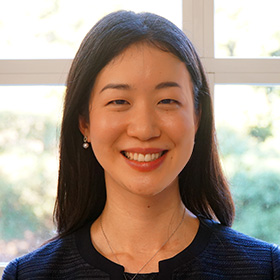The first Global Career Course of 2016 was held with Akiko Sasakawa being invited to speak. She has been working in various countries with the Japan Bank for International Cooperation (JBIC) and the Organization for Economic Co-operation and Development (OECD), in its’Paris headquarters.
Ms. Sasakawa spoke about what she learned from her past work and experiences. She told of her experience specifically in terms of “How Japanese people can contribute in international fields.”

The Japan Bank for International Cooperation (JBIC), where Ms. Sasakawa started her career, is a governmental organization which financially supports projects which are important for both Japan and the international community.
Ms. Sasakawa first gave us an example about a project that she was involved with.It related to loaning funds to the state-owned Electricity Generating Authority of India, which was suffering from power shortages, to purchase power generation equipment made in Japan.

“It is necessary to consider the impact on the local environment and people’s lives. It is not just about lending money to buy power generation equipment.” Ms. Sasakawa presented photos of local people and from them we learned about engaging in infrastructure building and also how it’s important to view things as continuing projects.

In 2010, Ms. Sasakawa seconded to the Organization for Economic Cooperation and Development in Paris headquarters. She asked the group, “How many Japanese regular staff do you think there are?’
” I think it’s about 100 people”, one of the students answered, “It’s actually about 20 people”, when she gave us that answer, the students were surprised. It was much less than they expected.

“Since there were not many Japanese people, I thought about what we had to do to exert our presence”.
There was only one Japanese person in her team, and the rest were people from many countries with more than ten years of experience in the field. Since Ms. Sasakawa was young and was from a different culture, it was hard for her to obtain their trust at first.

Through communicating tenaciously and openly conveying her own opinion, she was gradually able to build a rapport and was asked to comment more. “I thought listening to the ideas of others and conveying my opinion in a friendly way is what is important to build closer relationships with the people around me.”

Even when she managed international conferences related to trade with the Organization for Economic Cooperation and Development, she thought about how Japanese people should act. She felt strongly that communication skills used between people with different backgrounds was very important. When she was an international conference in which national representatives meet she witnessed the difference between the “negotiation methods” and “deportment” of Japanese people and others.

“Understanding the” differences” between others and conveying your own opinion with sympathy are important skills and it is important to plan negotiations with this in mind. She told the students this information which was based on her experiences working abroad and also gained from hearing about experiences of other Japanese people in multinational environments.

While being very friendly, Ms. Sasakawa also showed she has a strong mindset. The students listened attentively to her dramatic stories. While accepting the “differences” on the world stage, she opened up to others but maintained her Japanese sensibilities.
Her attitude was very balanced and the students were shown a great example of a model for how Japanese people can contribute globally.




